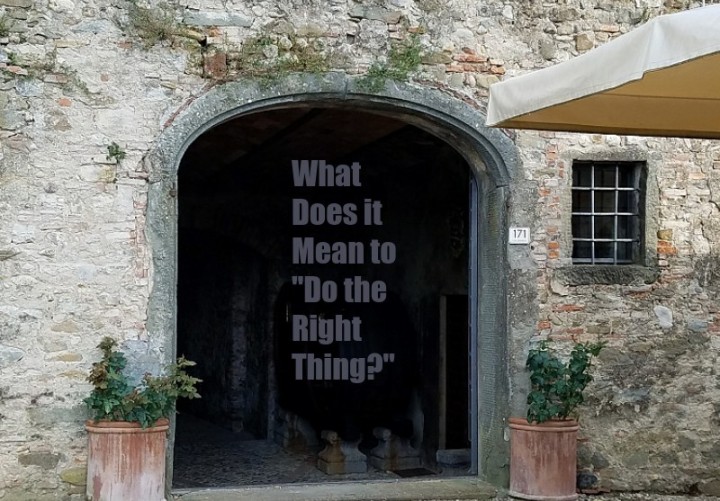By Linda Fisher Thornton
The “Keep it Simple” approach is good for many situations, but keeping it simple will set you up for failure in ethics. Using an oversimplified approach to solving a complex ethical problem just means you leave out variables you should be considering.
5 Reasons a “Do the Right Thing” Message Isn’t Enough
- Nobody knows what it means
- Even though it is positive, it is too vague to direct good choices
- Everyone defines it differently, and acts on their definition
- Unless you painstakingly define what you mean by “do the right thing,” there is no common understanding of ethical expectations across the organization
- A vague definition can be used to justify unethical choices that “seem right” when you’re not using an ethical framework
“Do the Right Thing” is a wonderful starting point, but we need to define it in great detail. Otherwise, people will do whatever THEY think is the right thing, and that could pull your organization off course.
Ethical leaders don’t just ask people to “do the right thing.” They share examples of people who have done the right thing. They explain ethical performance standards that define “the right thing” and bring it to life in discussions about how to handle competing interests. This approach keeps everyone headed in the same positive direction.
![]()
Prepare Your Leaders For Ethical Leadership Future – Help Them Learn To See Through The 7 Lenses®.
Learn how ethical expectations are increasing, and what you can do to stay ahead of the curve.
Click the cover to read a free preview!
Unleash the Positive Power of Ethical Leadership®
©2016 Leading in Context LLC



I think doing the right thing is being kind to everyone
LikeLike
Doing the right thing is not a vague mantra. Those who live by it know this and they know what it means. Doing the right thing means doing what is best for the greater or common good. It means making decisions that are not based on your own personal needs, that don’t expand your popularity, or enforce your personal beliefs. It’s about knowing the difference between good and bad and right and wrong and acting in accordance with those tenets.For example, if I am in a position of power (as a CEO, a politician, a head of household, etc.), doing the right thing begins with me presenting a positive role model for my employees or my citizens by my own actions. Setting such an example means I am honest, I listen to others, I weigh the consequences of my actions and those of my followers, I look for the best ways to serve the most people. I put my personal and professional agendas aside in favor of what is fair and what benefits the majority of the people.
LikeLike
Reblogged this on Gr8fullsoul.
LikeLike